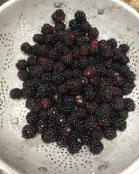Sustainability is a process of continual decision-making and effort to become more sustainable, creating a farm enterprise that will exist year-to-year and will continue to exist in the future. Characteristics of a sustainable farm include: a farm that considers annual and future profits and has a business plan for future success; a farm that treats the environment with the knowledge that the farm needs good soils, water and air in the future; a farm that makes management decisions understanding the limitations of resources and the impact of management practices; a farm that understands its effects on climate and resources and its role in protecting the planet; and a farm that strives to improve annually and seeks to have increased equity and value so that it can continue indefinitely into the future.
This workbook, developed by University of Arkansas System Division of Agriculture Center for Agricultural and Rural Sustainability, is meant as a guide for sustainable decision-making in fruit production, specifically blackberries and raspberries. "Sustainable Blackberries & Raspberries: A self-assessment workbook for growers," is designed to help farmers understand individual tasks and decisions on the farm and to self-evaluate and rate the sustainability of those decisions. The topics outlined in the workbook are not a set of recommendations but a set of considerations. This book is not intended for use as a "one time" operation. It should be used annually with the idea of improving the farm. Successful use of this book would be for a grower to start thinking more holistically about the farm operation.
Topics covered include: site selection, site preparation, soil and nutrient management, plant selection, water management and irrigation, trellising and pruning, insect and mite management, weed management, disease and virus management, farm safety, harvest and post-harvest, business management, and marketing.
Want more information? See the related SARE grant:
This material is based upon work that is supported by the National Institute of Food and Agriculture, U.S. Department of Agriculture through the Sustainable Agriculture Research and Education (SARE) program. Any opinions, findings, conclusions, or recommendations expressed in this publication are those of the author(s) and should not be construed to represent any official USDA or U.S. Government determination or policy.
